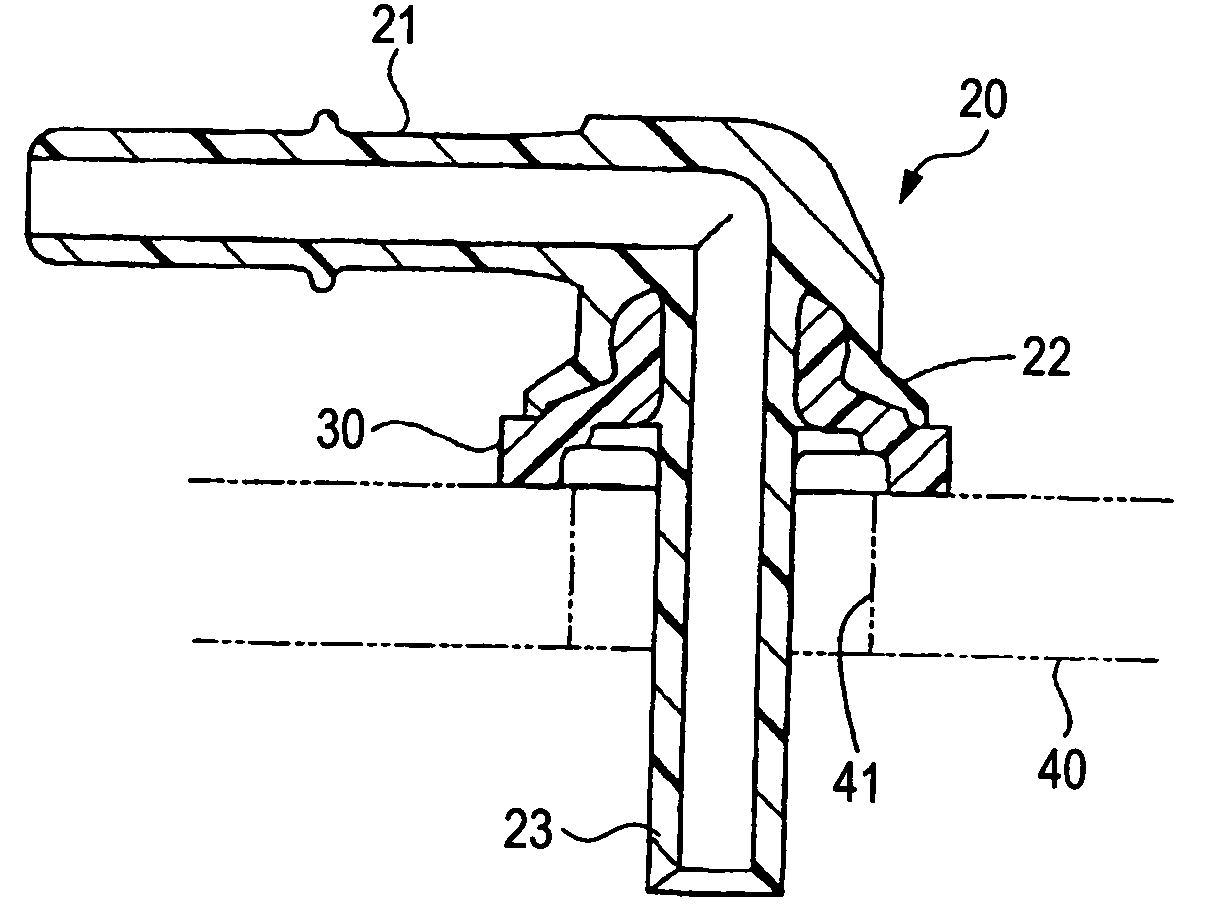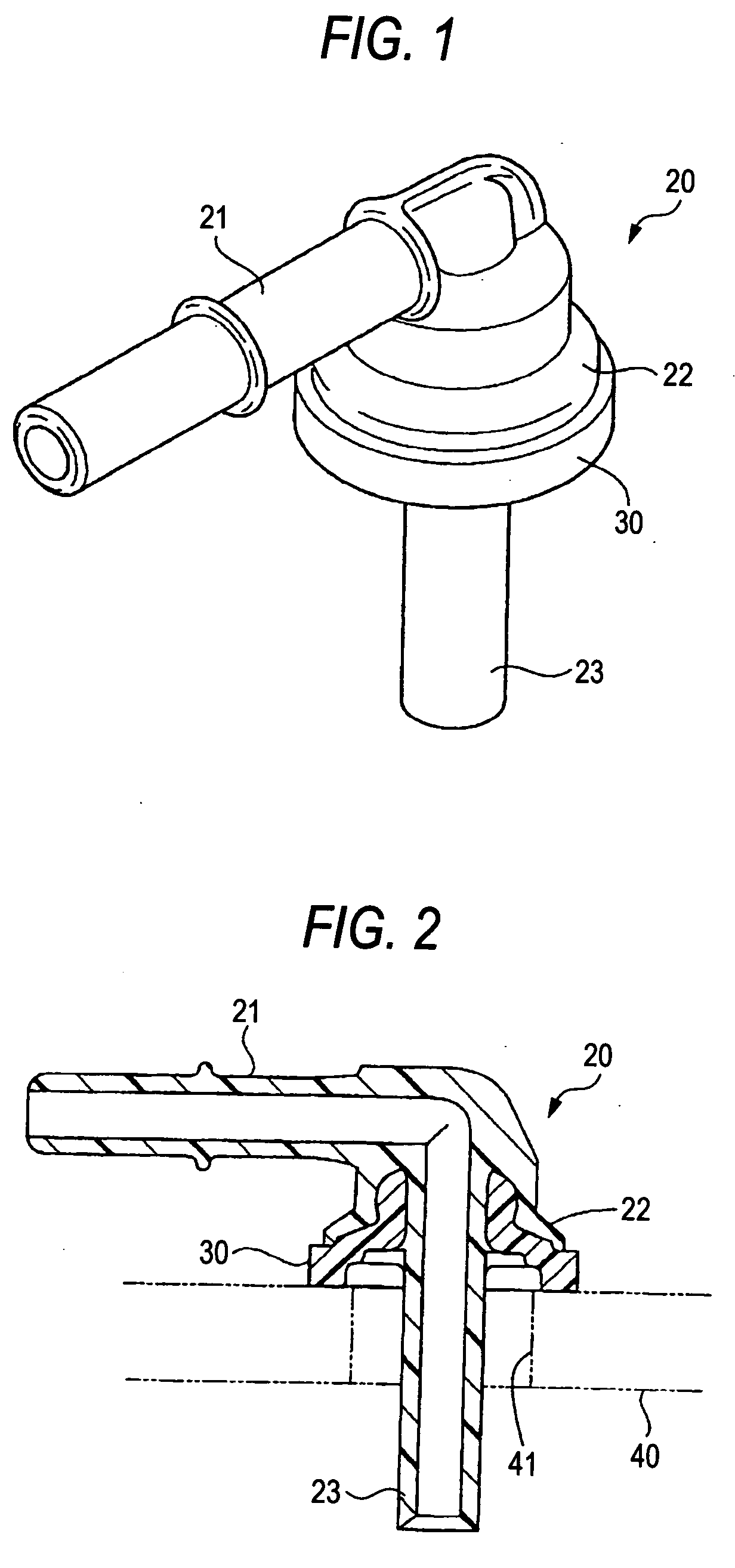Joint for fuel tank and method for manufacturing the same
a fuel tank and joint technology, applied in the direction of branching pipes, packaging, siphons, etc., can solve the problems of insufficient fuel non-permeability of nylon 11 or nylon 12, inferior chemical resistance of nylon 6, nylon 66, etc., to enhance fuel non-permeability, increase the adhesive strength of the joint to a modified polyolefin of the junction, and reduce the effect of moldability
- Summary
- Abstract
- Description
- Claims
- Application Information
AI Technical Summary
Benefits of technology
Problems solved by technology
Method used
Image
Examples
examples 1 , 2
Examples 1, 2
[0049] Specimens for examples 1, 2 were prepared by means of insert molding with use of molding materials shown in Table 3 below. More specifically, as a primary molding process, a modified polyolefin was molded into a half size of an ASTM-type 1 dumbbell to prepare primary molded specimens. The primary molded specimen was inserted into a die, and injection molding was performed with use of a semi-aromatic polyamide as a secondary material. Accordingly, adhesion specimens equivalent to dumbbell of ASTM type 1 were obtained. In the examples, FANUC 100I was employed as a molding machine, and an ASTM abutment test piece mold was used as a die. The die for the injection molding for secondary molding was maintained at 80° C.
TABLE 3Example 1Example 2Semi-AromaticTypeMXD6PA9TPolyamideMelting Point243° C.290° C.Amount of42 μeg / g50 μeg / gTerminal AminoGroupModifiedMFR*0.30.6PolyolefinMelting Point133° C.128° C.Density0.940.935
*Measurement was performed in compliance with JIS-K7...
PUM
| Property | Measurement | Unit |
|---|---|---|
| thermal decomposition point | aaaaa | aaaaa |
| density | aaaaa | aaaaa |
| density | aaaaa | aaaaa |
Abstract
Description
Claims
Application Information
 Login to View More
Login to View More - R&D
- Intellectual Property
- Life Sciences
- Materials
- Tech Scout
- Unparalleled Data Quality
- Higher Quality Content
- 60% Fewer Hallucinations
Browse by: Latest US Patents, China's latest patents, Technical Efficacy Thesaurus, Application Domain, Technology Topic, Popular Technical Reports.
© 2025 PatSnap. All rights reserved.Legal|Privacy policy|Modern Slavery Act Transparency Statement|Sitemap|About US| Contact US: help@patsnap.com


